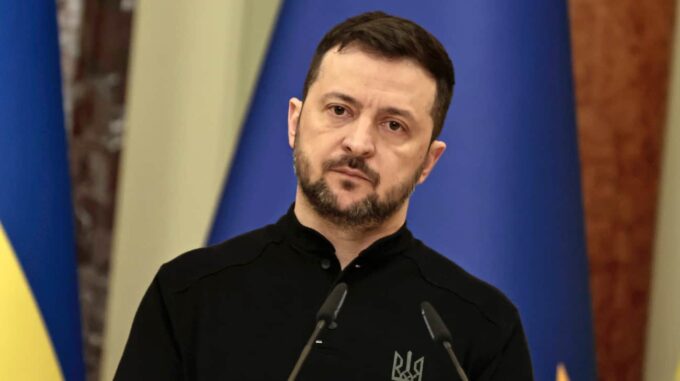Zelensky receives an official invitation to the NATO summit in The Hague: key details and the political context

On Tuesday evening, Ukrainian President Volodymyr Zelensky officially announced via a video link to journalists that Ukraine had received an invitation to participate in the NATO summit scheduled to be held in The Hague on June 24-25 of this year. This announcement signifies significant progress in Ukraine’s Euro-Atlantic integration prospects and highlights its active diplomatic efforts ahead of this key event. During the conversation conducted via Zoom platform, Zelensky shared the results of recent negotiations with NATO Secretary General Jens Stoltenberg. According to the Ukrainian leader, Stoltenberg confirmed that Ukraine has been invited to the summit, and this news is of great importance for the country. "We have been invited to the NATO summit. Considering all the current geopolitical circumstances, this is a significant step forward," he emphasized. When journalists inquired about how Ukraine would be represented at the forum, Zelensky noted that currently Foreign Minister Andrii Sybiha is conducting consultations with colleagues from other countries regarding infrastructure, security, and the context of future defense capabilities. The key aspect of this news is the changing political backdrop ahead of the summit. Prior reports from international media indicated that internal political tensions and high-level personal ambitions in Washington had led US diplomats to prepare what is known as a minimalistic summit declaration, which is likely to omit questions of Ukraine’s full membership or postpone its official recognition. Specifically, among the most recent diplomatic rumors were assumptions that the United States opposes broad Ukrainian representation at this year's summit and may be employing a strategy of restraining its comprehensive integration into NATO formats. Meanwhile, official representatives from Washington, including Secretary of State Marco Rubio, have refuted this information, emphasizing the United States’ openness to further discussions and support for Ukraine’s Euro-Atlantic aspirations. It is important to note that during this period, an active internal political drama is unfolding related to Ukraine’s foreign policy steps and diplomatic confrontations with some Western countries. This raises concerns about how the issue of Ukraine’s participation in the summit will be resolved beforehand and how it might affect the country’s image and future integration into alliance defense structures. Therefore, the received invitation is both a significant diplomatic step and a signal of Ukraine’s desire to strengthen its position on the global stage. Ukrainian diplomacy now faces the task of effectively leveraging this opportunity to persuade partners of the need to expand the participation format at the summit or, at minimum, to secure future support arrangements. It is expected that in the coming months, the situation surrounding Ukraine’s NATO involvement will remain one of the key topics in international discussions, since its outcome may influence not only Ukraine’s formal status within the Alliance but also the country’s security stability amid current war conditions and the broader geopolitical struggle for influence and safety. All this creates a tense atmosphere around the upcoming summit, where Ukraine, on the one hand, aims for deeper integration, while on the other hand, faces external pressure and political maneuvering by major global players. Forecasts about how events will develop remain uncertain; however, one thing is clear — the diplomatic contest over Ukraine’s future in NATO is actively ongoing.

